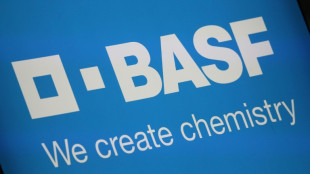
-
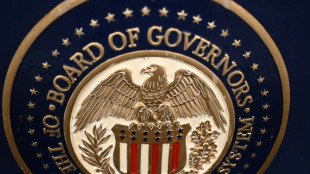 Gold hits record, stocks diverge as Trump fuels Fed fears
Gold hits record, stocks diverge as Trump fuels Fed fears
-
World could boost growth by reducing trade doubt: IMF chief economist
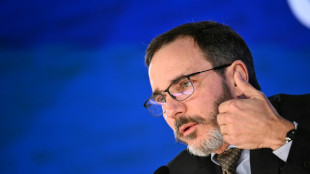
-
 IMF slashes global growth outlook on impact of US tariffs
IMF slashes global growth outlook on impact of US tariffs
-
IMF slashes China growth forecasts as trade war deepens
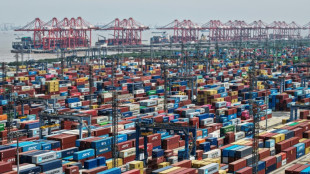
-
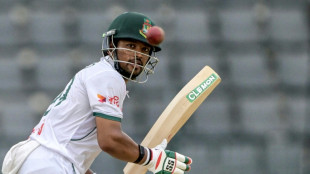 Skipper Shanto leads Bangladesh fightback in Zimbabwe Test
Skipper Shanto leads Bangladesh fightback in Zimbabwe Test
-
US VP Vance says 'progress' in India trade talks
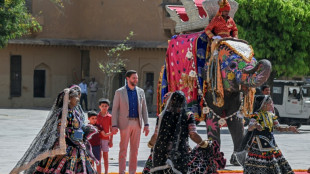
-
 Ex-England star Youngs to retire from rugby
Ex-England star Youngs to retire from rugby
-
Black Ferns star Woodman-Wickliffe returning for World Cup

-
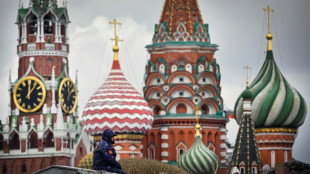 Kremlin warns against rushing Ukraine talks
Kremlin warns against rushing Ukraine talks
-
Mbappe aiming for Copa del Rey final return: Ancelotti
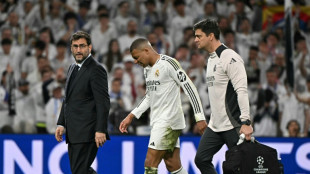
-
 US universities issue letter condemning Trump's 'political interference'
US universities issue letter condemning Trump's 'political interference'
-
Pope Francis's unfulfilled wish: declaring PNG's first saint
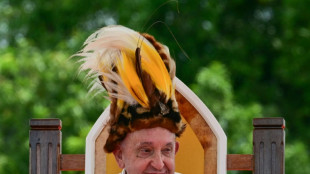
-
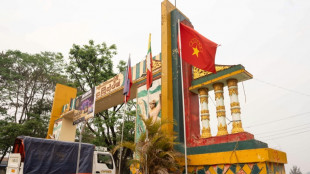 Myanmar rebels prepare to hand key city back to junta, China says
Myanmar rebels prepare to hand key city back to junta, China says
-
Hamas team heads to Cairo for Gaza talks as Israel strikes kill 26
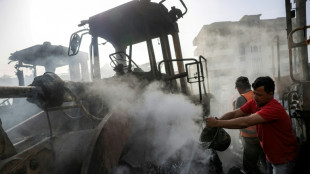
-
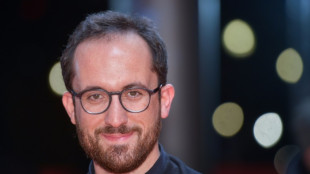 Pianist to perform London musical marathon
Pianist to perform London musical marathon
-
India's Bumrah, Mandhana win top Wisden cricket awards
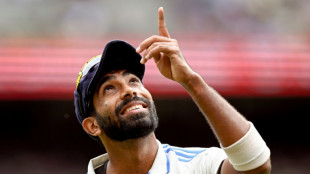
-
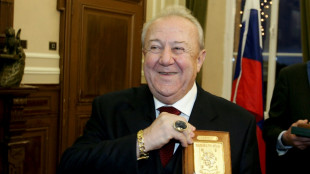 Zurab Tsereteli, whose monumental works won over Russian elites, dies aged 91
Zurab Tsereteli, whose monumental works won over Russian elites, dies aged 91
-
Roche says will invest $50 bn in US, as tariff war uncertainty swells
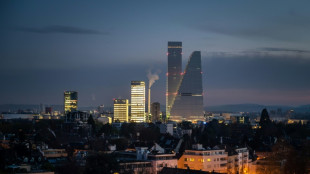
-
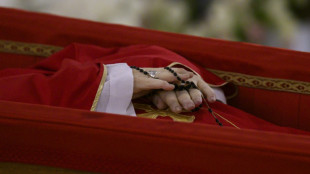 Pope Francis's funeral set for Saturday, world leaders expected
Pope Francis's funeral set for Saturday, world leaders expected
-
US official asserts Trump's agenda in tariff-hit Southeast Asia
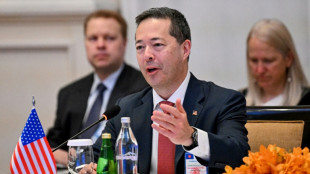
-
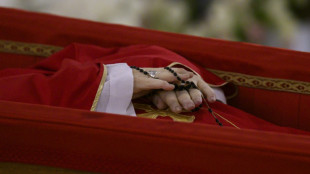 World leaders set to attend Francis's funeral as cardinals gather
World leaders set to attend Francis's funeral as cardinals gather
-
Gold hits record, stocks mixed as Trump fuels Fed fears
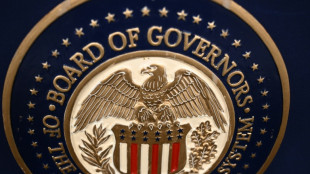
-
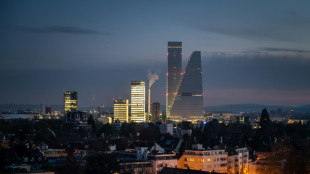 Roche says will invest $50 bn in US over next five years
Roche says will invest $50 bn in US over next five years
-
Fleeing Pakistan, Afghans rebuild from nothing
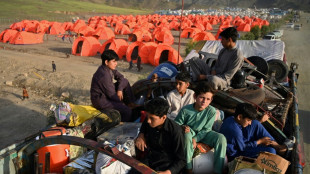
-
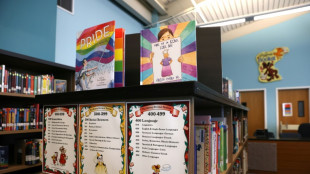 US Supreme Court to hear case against LGBTQ books in schools
US Supreme Court to hear case against LGBTQ books in schools
-
Pistons snap NBA playoff skid, vintage Leonard leads Clippers

-
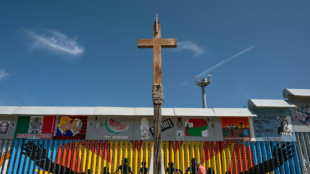 Migrants mourn pope who fought for their rights
Migrants mourn pope who fought for their rights
-
Duplantis kicks off Diamond League amid Johnson-led changing landscape

-
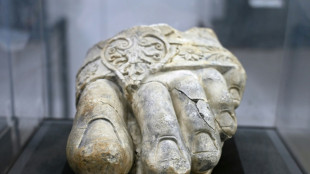 Taliban change tune towards Afghan heritage sites
Taliban change tune towards Afghan heritage sites
-
Kosovo's 'hidden Catholics' baptised as Pope Francis mourned
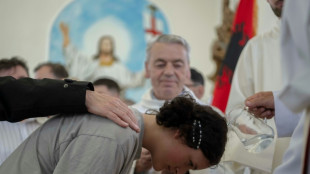
-
 Global warming is a security threat and armies must adapt: experts
Global warming is a security threat and armies must adapt: experts
-
Can Europe's richest family turn Paris into a city of football rivals?
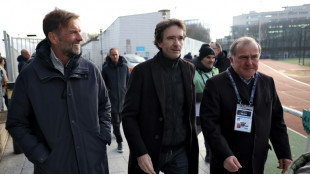
-
 Climate campaigners praise a cool pope
Climate campaigners praise a cool pope
-
As world mourns, cardinals prepare pope's funeral
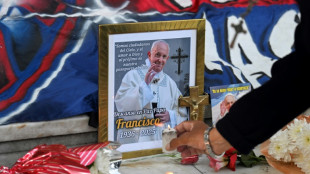
-
 US to impose new duties on solar imports from Southeast Asia
US to impose new duties on solar imports from Southeast Asia
-
Draft NZ law seeks 'biological' definition of man, woman
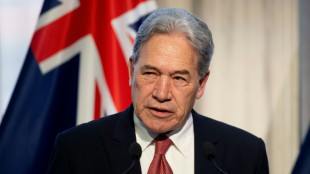
-
 Auto Shanghai to showcase electric competition at sector's new frontier
Auto Shanghai to showcase electric competition at sector's new frontier
-
Tentative tree planting 'decades overdue' in sweltering Athens

-
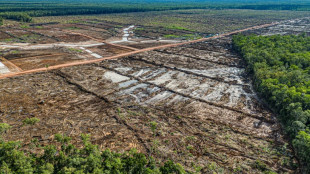 Indonesia food plan risks 'world's largest' deforestation
Indonesia food plan risks 'world's largest' deforestation
-
Gold hits record, stocks slip as Trump fuels Fed fears
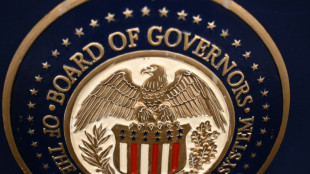
-
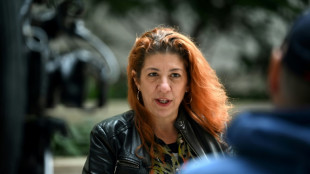 Trump helps enflame anti-LGBTQ feeling from Hungary to Romania
Trump helps enflame anti-LGBTQ feeling from Hungary to Romania
-
Woe is the pinata, a casualty of Trump trade war

-
 'Like orphans': Argentina mourns loss of papal son
'Like orphans': Argentina mourns loss of papal son
-
Trump tariffs torch chances of meeting with China's Xi

-
 X rival Bluesky adds blue checks for trusted accounts
X rival Bluesky adds blue checks for trusted accounts
-
China to launch new crewed mission into space this week

-
 Morocco volunteers on Sahara clean-up mission
Morocco volunteers on Sahara clean-up mission
-
Latin America fondly farewells its first pontiff

-
 'I wanted it to work': Ukrainians disappointed by Easter truce
'I wanted it to work': Ukrainians disappointed by Easter truce
-
Harvard sues Trump over US federal funding cuts


Aid freeze silences Latin America media scrutiny of US foes
A choke on US aid threatens to smother media exposing abuses in Cuba, Nicaragua and Venezuela, to the unconcealed delight of the very leaders Washington once wanted held accountable.
It was one of President Donald Trump's first acts on his return to the White House: curbing the US Agency for International Development (USAID) and other bodies that fund humanitarian and democratization projects.
And, while a judge has since ruled the action was probably unconstitutional, a dark cloud hangs over aid projects, including some $268 million budgeted for "independent media" in 30 countries in 2025, according to Reporters Without Borders (RSF).
Dozens of Latin American outlets have cut staff. Some have closed altogether.
At the same time, the Trump administration has dismantled state-run American media with a global audience, such as Radio Y Television Marty -- founded in Florida in the 1980s to counter the Cuban Communist Party's monopoly on information -- and the Voice of America.
"It is regrettable that what had been one of the most reliable partners for the independent media sector and Cuban civil society has decided to so freely give the authoritarians cause for celebration," Jose Nieves, editor of the Miami-based Cuban news portal El Toque told AFP of the US retreat.
"As we are seeing these days, the dictatorships in the region openly organize their propaganda apparatus, using resources they are not allocating to all the humanitarian crises we are experiencing," he added.
- 'Subversion' -
Cuba's President Miguel Diaz Canel, who describes critical journalists as Washington-backed "mercenaries," has welcomed the Donald Trump administration's cut to funding for non-state media that operate mostly from abroad, including Miami.
USAID-funded projects for "so-called independent media and NGOs," he wrote on X last month, amounted to nothing other than multi-million dollar "subversion."
In Cuba, most media outlets belong to the state, their narrative controlled by the Communist Party.
Some non-state digital sites have emerged in recent years, many operating from abroad and accessible only to Cubans with a VPN.
El Toque, which received money from the National Endowment for Democracy -- a non-profit foundation funded largely by appropriations from the US Congress -- has had to lay off half its staff as its budget was slashed, said Nieves.
The resulting "paralysis" of critical media "will only contribute to a more misinformed populace subjected to the lies of the enemies of freedom and democracy," the editor said.
- 'Information blackout' -
For journalists in Nicaragua and Venezuela -- countries which, like Cuba, are under US sanctions for anti-democratic actions -- the aid cuts have also been devastating.
"It put us in a state of emergency," Carlos Herrera, co-founder of the Nicaraguan news site Divergentes told AFP.
Divergentes, which operates from Costa Rica, cut its payroll in half and Herrera fears "a total information blackout" in Nicaragua.
Several journalists have been banished or stripped of their nationality by Daniel Ortega's government in recent years.
At least 300 Nicaraguan journalists have left the country, and four were arrested in the last 12 months, according to RSF.
Nicaragua "no longer has independent media" operating within the country, where only state-run and media groups in "total self-censorship" survive, said Herrera.
- "USAIDcalypse" -
In Venezuela, the media industry is "suffocating, drowning, and we can't even scream for help," said the editor of an online paper who requested anonymity for fear for his safety.
More than 200 media outlets in the South American country have closed since the 1999-2013 presidency of socialist leader Hugo Chavez, according to the rights NGO Espacio Publico.
Several journalists are under investigation for receiving foreign funds, suspected of being anti-government "agents."
"Traditional media have stopped fulfilling their informational role in a climate of self-censorship and brutal censorship," said Rodolfo Rico, a Venezuelan free press activist.
Whatever critical media remains depend on foreign funding due to domestic advertisers' fear of reprisals, and for them, Washington's withdrawal amounts to a "USAIDcalypse," added Rico.
"Journalists have less and less space to practice their profession, and people have fewer ways to stay informed," a Venezuelan reporter who recently lost his job told AFP, also declining to be named.
lp-jb-mis-erc/nn/mlr/dc
C.Koch--VB

